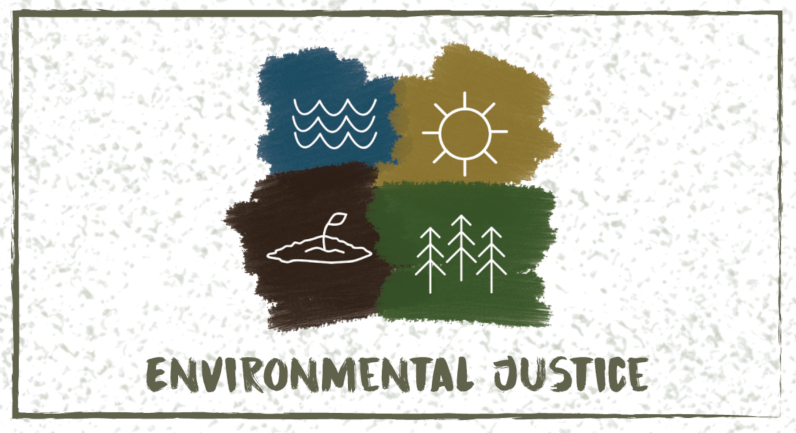
Logo by: Seattle University.
Editor´ s note: Christopher M. Bacon, Associate Professor of Environmental Studies at Santa Clara University, sent us a report on the conference.
On Thursday and Friday, May 2-3 over 250 students, faculty, staff, visiting academics, and representatives of community-based organizations participated in Santa Clara University’s "Environmental Justice & the Common Good Conference" on community-university partnerships for research, learning and social change. After two days of panels, dialogue, and workshops, the organizing committee identified a shared commitment among participants to:
- Find ways for universities to partner with local, statewide, and global networks for environmental justice (EJ) and integral ecology.
- Learn from exemplary projects about how university and community partners can work together well.
- Incubate new collaborative projects.
- Include this type of programming in future conferences.
- Expand the use of community-engaged research for EJ across Jesuit and other higher education networks and with local partners.
The conference was organized by an interdisciplinary team of Santa Clara University (SCU) faculty initially convened by SCU’s Ignatian Center for Jesuit Education, consisting of Chris Bacon, Iris Stewart-Frey, Ed Maurer, Chad Raphael, and Tseming Yang. During the planning phase, the organizing committee engaged ideas from community-based organizations, staff, faculty from other universities, and leaders in sustainability and justice connected with the Association of Jesuit Colleges and Universities (AJCU), including Nancy Tuchman (Loyola Chicago), Fr. Pedro Walpole, S.J. (EcoJesuit), Cecilia Calvo (Jesuit Conference of Canada and the United States ) and Fr. John Braverman, S.J. (St. Joseph’s University).
In his opening remarks to the conference, SCU’s outgoing president, Fr. Michael Engh S.J., recalled the challenge he gave us in his inaugural address a decade ago to “champion environmental justice, and to do so explicitly for the sake of and alongside the poorest in our world"—a challenge Pope Francis enlarged on in his landmark 2015 encyclical, Laudato Si'. Panels reviewed the state of environmental justice (EJ) today, exemplary university-community research partnerships, and how these partners can work together well. Selected contributions included keynotes by Rachel Morello-Frosch (UC Berkeley), Patrice Simms (Earthjustice), and Gustavo Aguirre (Center on Race Poverty and the Environment), as well as contributions from Martha Matsuoka (Occidental College), Veronica Eady (California Air Resources Board), Helen Kang (Golden Gate University), Marianne Engelman-Lado (Yale University), Raúl Díaz (ASDENIC, Nicaragua), and SCU faculty and staff.
This first day of the conference was open to the public and featured speakers from higher education, community-based groups, faith-based organizations, and government agencies engaged in a vigorous dialogue. Students and faculty also presented examples of community-engaged research on EJ at a poster session. In breakout groups, participants discussed food, water, and climate justice, toxics, the personal dimensions of social change, and more, as they envisioned new research partnerships and expanded links among Jesuit schools. Conference organizers circulated a guide to conducting engaged research for EJ.
The second day of the conference consisted of workshops focused on building networks for university-community partnerships and EJ. Participants focused on creating a regional California-based environmental justice network, expanding the newly created AJCU Integral Ecology Affinity Group, and identifying strategies to foster global partnerships through the International Association of Jesuit Universities (IAJU) and Ecojesuit. Fr. Michael Garranzini S.J. (Secretary of Higher Education for the Society of Jesus) joined the discussion to help envision new efforts to promote community-engaged research on EJ at Jesuit schools worldwide.

Participants committed to strengthening the AJCU’s Integral Ecology Affinity Group by incubating new collaborative projects that: (1) are inspired by the Jesuits’ apostolic preferences, (2) integrate university and community partners, (3) cross borders, (4) address the institutional obstacles to community-engaged research, and (5) build long-term authentic partnerships.
The team of Santa Clara University faculty and several campus units will organize follow-up workshops that share best practices and strengthen regional and national networks. Nancy Tuchman announced that Loyola University Chicago will host the next conference in March 2020. This event will foreground youth leadership and climate change, and include a day dedicated to AJCU network building. The Chicago conference will build on the Santa Clara dialogue and showcase 6-8 engaged research projects as well as a poster session focused on projects from North and Central America. This will lead into publications, fundraising proposals, new avenues for collective advocacy, and future work to transform universities and societies.
